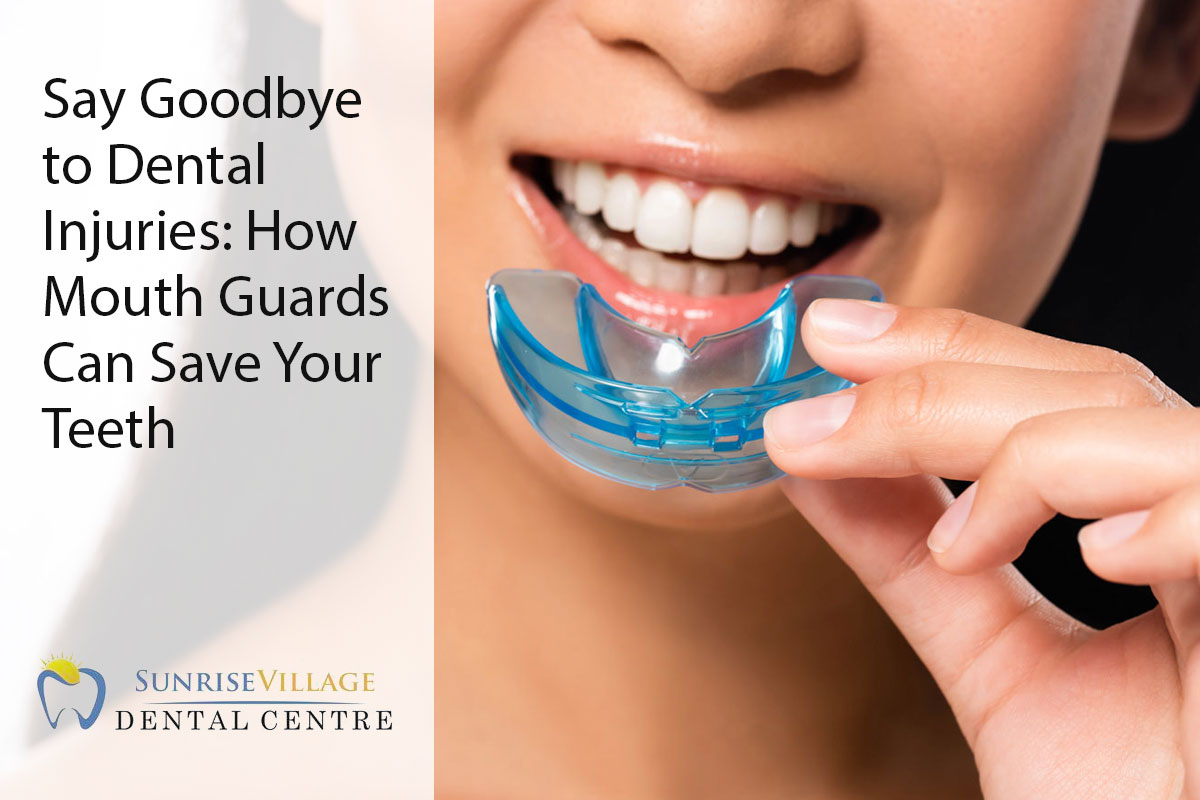
Protect your teeth with mouth guards, whether playing sports, grinding your teeth, or engaging in activities that pose a risk. Discover the benefits of mouth guards and how they prevent dental injuries.
What are mouth guards?
Mouth guards serve as protective devices, shielding your teeth and gums from potential injuries. Usually crafted from flexible materials like silicone or rubber, these guards absorb the impact of blows, distributing forces across a broader area. This design significantly lowers the risk of fractured teeth, broken jaws, and soft tissue injuries. While mouth guards come in various shapes and sizes, they typically feature an upper layer covering the teeth and a lower layer against the gums, ensuring both impact protection and a comfortable fit.
Types of mouth guards
There are two main types of mouth guards: custom-fit and boil-and-bite.
Custom-fit mouth guards are personalized by dental professionals to perfectly match your dental structure. They involve creating an impression of your teeth, ensuring the highest level of protection and comfort tailored to your individual needs. Although they may be more expensive, the investment is worthwhile for those prioritizing optimal protection.
Boil-and-bite mouth guards are available at sports stores and can be molded at home. Made from thermoplastic material, they soften when boiled, and you create a custom fit by biting into them. While not as customized as the custom-fit ones, boil-and-bite mouth guards still offer decent protection and are more affordable
Benefits of using mouth guards
Mouth guards offer various benefits in safeguarding your teeth. Here are some key advantages:
- Prevention of Dental Injuries: Mouth guards act as a protective cushion, absorbing impact during activities like contact sports or recreational pursuits. Wearing a mouth guard significantly lowers the risk of tooth fractures, jaw fractures, and soft tissue injuries.
- Protection Against Teeth Grinding: Mouth guards are effective in mitigating the effects of teeth grinding (bruxism) by creating a barrier between the upper and lower teeth. This helps prevent enamel wear, tooth sensitivity, and jaw discomfort, as the mouth guard absorbs the forces generated during grinding.
- Prevention of Jaw-Related Issues: Mouth guards not only protect teeth but also contribute to preventing jaw-related problems. The cushioning effect distributes impact forces, reducing strain on jaw joints. This is particularly beneficial for those prone to temporomandibular joint (TMJ) disorders or individuals experiencing jaw pain during physical activities.
How to choose the right mouth guard for your needs
Selecting the right mouth guard is crucial for optimal protection and comfort. Consider the following factors when making your decision:
- Level of Protection Required: Assess the protection needed based on your activities. Custom-fit mouth guards are ideal for high-contact sports, while boil-and-bite options may suffice for lower-risk activities.
- Comfort and Fit: A well-fitted mouth guard is essential for both comfort and effectiveness. Custom-fit guards offer the best fit, tailored to your mouth, but correctly molded boil-and-bite guards can also provide a reasonable fit.
- Durability and Lifespan: Evaluate the durability and expected lifespan of the mouth guard. Custom-fit options from dental professionals are typically more durable and have a longer lifespan than boil-and-bite alternatives.
- Breathability and Speech Comfort: Some mouth guards may affect breathing and speech. Look for designs that allow proper airflow and maintain normal speech abilities.
- Ease of Cleaning and Maintenance: Consider the ease of cleaning and maintenance for good oral hygiene. Be mindful of any special cleaning solutions or storage requirements associated with the chosen mouth guard.
Proper care and maintenance of mouth guards
To ensure your mouth guard remains effective and long-lasting, follow these care tips:
- Clean After Each Use: Rinse with water or a mild mouthwash after each use. Gently clean the surface with a soft toothbrush to remove debris and bacteria.
- Avoid Hot Water: Use cool or lukewarm water when cleaning or storing your mouth guard to prevent distortion from excessive heat.
- Store Properly: Store in a well-ventilated container to prevent bacterial growth. Avoid direct sunlight and prolonged closure in a container.
- Regular Inspection: Check for signs of wear or damage regularly. Replace immediately if you observe cracks, tears, or deformities to maintain optimal protection.
- Avoid Chewing: While designed to withstand pressure, refrain from chewing on your mouth guard, as it can compromise integrity and reduce effectiveness.
- Replace When Necessary: Mouth guards wear out over time. Replace as recommended by your dental professional or if you notice signs of deterioration.
Take the steps to protect your teeth with mouth guards
Protecting your teeth is essential, whether you’re into sports or dealing with teeth grinding. A well-fitted mouth guard is a smart investment. Custom-fit ones from dental professionals offer the best comfort, but boil-and-bite options work well too. Choose based on your needs, take good care of it, and prioritize your oral health. Don’t wait for a dental injury – say goodbye to worries and keep your teeth safe. Call Sunrise Village Dental at (604) 253-2433 to book an appointment.
